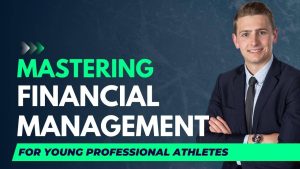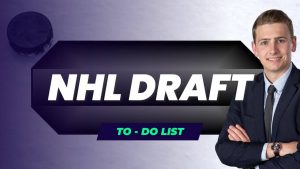[vc_row][vc_column][vc_column_text]
Financial Advice from a Current Pro
In a recent conversation with Dale Weise, we discussed some of his experiences with investments and financial advisors throughout his career. Unfortunately for Dale, his experiences fall under the “less than ideal” category. However, he’s gained valuable insight from these experiences that have helped him get to a great place financially today. He hopes he can help the next generation of players avoid finding themselves in the same situations he found himself in. Here are some of the main takeaways from our conversation:
Seek Transparency
You shouldn’t feel left in the dark regarding your finances. One of the biggest frustrations Dale experienced in the relationships with his advisors was that he could rarely get a straight answer. Whether he was asking about the fees, his returns, or anything regarding his accounts and portfolio, he’d receive a wishy-washy response.
Tip: When you ask questions to your advisor, if you feel like they are tiptoeing around the answer, it’s possible that could be a red flag.
Diversification is Key
As much as it is an overused cliché, you truly don’t want to put all your eggs in one basket. Whether you’re a DIY investor, or working with an advisor, ensure that you diversify across asset classes. Consider building a portfolio that consists of global stocks, bonds, alternatives, and real estate. By doing so, you’ll drastically reduce your risk and still maintain the growth potential.
Tip: If you’re working with an advisor, and they’re constantly pushing one asset class (i.e. stocks), they may be doing so because of an ulterior motive that isn’t in line with your best interests.
Education
As important as it is to find an advisor to help you make financial decisions, it is equally as important to develop a basic understanding of what is happening with your money. Unfortunately, the financial industry is full of confusing language and complex products, so unless you really enjoy studying the topic, you’ll need your advisor to provide guidance.
Tip: If every time you meet with your advisor it feels like they are talking circles around you, and you leave the meeting feeling like you actually know less about what is going on, something is off with the relationship.
The Relationship is Everything
Last but certainly not least, seek financial advice from someone who understands your world, is relatable, and that you trust. The main issue that Dale ran into in his experiences was a breakdown in trust. If you feel even the slightest bit of uncertainty that your advisor isn’t looking out for your best interests, you should address it before the relationship turns sour.
Tip: Do some digging on your advisor before entrusting your finances with them. Ask multiple people that know them, where they come from, what they’ve done. What’s most important is that they’re good, trustworthy people that you can relate to. Avoid deciding to work with someone simply because they’ve been doing it a long time.
Plan for After Hockey
Dale and I didn’t discuss it in-depth, but he’s done a fantastic job preparing for life after the game. Hockey players live a unique life in that they earn the brunt of their income while they’re super young, retire before they’re 40 (typically), and then have another 40 years of life to fill.
Dale has scratched an itch of his to get involved in the real estate business, and is both having financial success from doing so, but also finding something to keep his mind occupied. He is still playing professionally but is setting himself up to have a fulfilled life in retirement where he isn’t sitting around twiddling his thumbs.
This is such a valuable piece that often gets overlooked in the financial world. The typical advisor-client relationship revolves around crunching investment returns and cash flow statements. While your investment account balance should be at the forefront of the relationship, what you do with that money, and how you spend your life in retirement should be equally as important.
My advice is to seek a financial advisor who provides more than just basic investment management but helps you organize your affairs so that you can play out the remaining years of your professional career without a worry in the world about what you’re going to do when the game stops.
A big thank you to Dale for this valuable insight!
[/vc_column_text][/vc_column][/vc_row]



